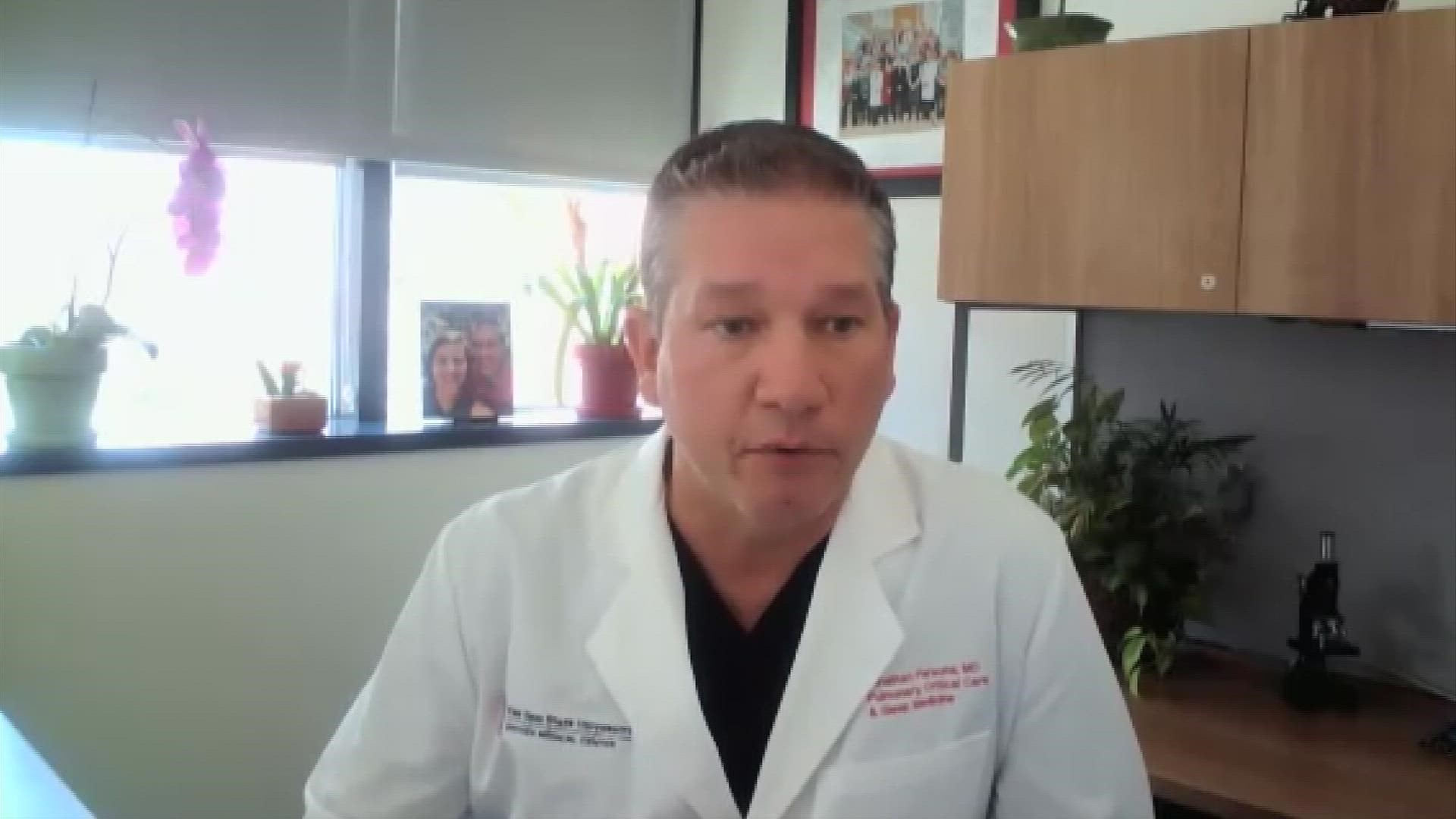COLUMBUS, Ohio — Before vaccines were available, Dr. Darwin Conwell contracted COVID-19.
It happened in November 2020. At the same time, research of monoclonal antibody treatment began at Ohio State University Wexner Medical Center, where he also happens to work.
“It saved my life. There's no doubt about it,” said Conwell, a gastroenterologist and medical professor.
When he started showing symptoms of COVID-19, he went to get tested at the Celeste Center.
“I lost my sense of smell in the parking lot and I said 'oh boy I think I've got covid.'”
And he did.
Not long after getting that positive test result, Conwell got a call from a research team at OSU Wexner Medical Center.
He chose to participate in a study for monoclonal antibody treatment -- an infusion therapy.
"It was painless, just an IV in your vein,” Conwell explained.
Later that night, he said that treatment would save him.
His symptoms got worse.
“I really got short of breath. I’ll never forget how short of breath I got,” Conway said.
He couldn't breathe and felt disoriented, until a moment of clarity. A moment he said he will never forget.
"Something just instantly changed,” he said as he snapped his fingers. “It was like God breathing into your lungs."
Dr. Conwell is one of more than 4,400 patients who have been treated with monoclonal antibodies between OSU Wexner Medical Center and OhioHealth combined since November 2020.
What is a monoclonal antibody and how does it work?
According to medical experts, an antibody is a protein that your immune system produces to respond to an infection.
A monoclonal antibody is developed in a lab. It mimics or enhances your natural immune response.
They can attach to what's called a spike protein on the surface of the virus – blocking it from invading human cells.
Dr. Jonathan Parsons is part of the team conducting research at OSU Wexner Medical Center.
"Monoclonal antibodies are basically proteins that we infuse into the bloodstream that targets the part of the coronavirus that helps it enter cells and cause damage,” he explained.
Parsons said by administering these medications early, they’ve been able to reduce the number of people that have progression of disease severity and eventually hospitalization.
“So essentially we’re blocking the ability of the coronavirus to get into your lungs and other organs thereby hopefully preventing damage,” Dr. Parsons explained.
For Dr. Conwell, he said it saved his life.
“I think it's a miracle drug for me,” he said.
If you have COVID-19 and are interested in learning more - the best place to start is by calling your primary care doctor.
Also, keep in mind - doctors say our best defense against COVID-19 is the vaccine.

